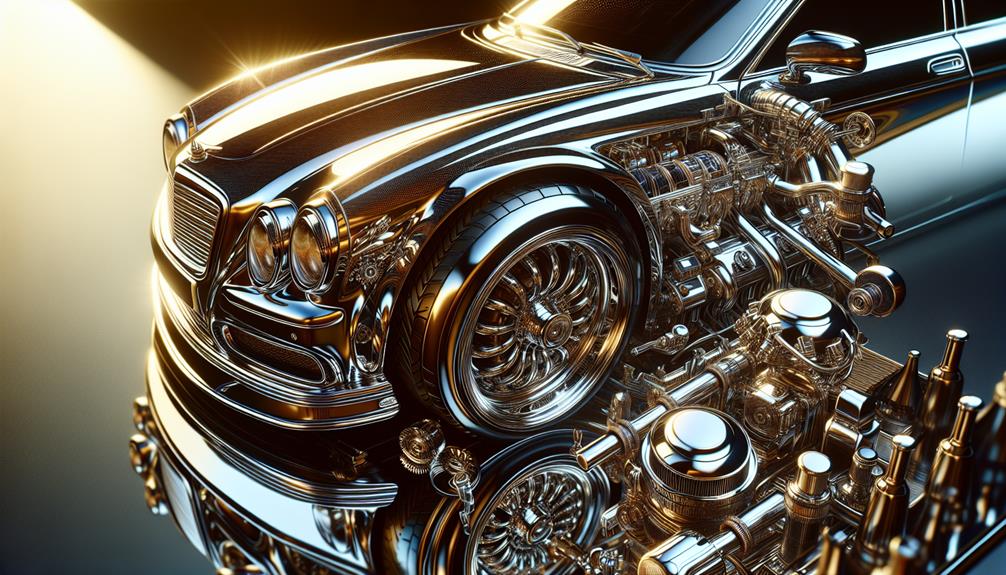
When it comes to understanding regular car maintenance and its importance, it is necessary to prioritize safety, performance and vehicle longevity. Regular checks identify potential problems before they turn into safety hazards. Brake inspectionsTire pressure checks and oil changes are essential tasks that improve safety and efficiency on the road. Maintaining your vehicle's brakes, tires and fluids not only prevents costly repairs, but also improves its performance. Keeping up with these routine tasks can extend the life of your vehicle by up to 15 years and even increase its resale value. Following a maintenance schedule You can ensure that your vehicle remains reliable and efficient; now let's go into more detail.
Contents
Regular maintenance checks are vital to ensure the safety of your vehicle, particularly when it comes to the brake systemas faulty brakes can lead to catastrophic accidents.
To ensure safety on the road, it is necessary to carry out routine inspections brake pads, check the fluid and tire pressure. Properly inflated tires not only improve maneuverability but also increase fuel efficiency.
Also, check the steering components to prevent mechanical problems. Functional lightsSignals and windshield wipers are essential for visibility, so include them in your routine checks.
To further improve the operation of your vehicle, you can now focus on improving its performance and efficiency through specific maintenance measures. Regular maintenance ensures that your car runs at its optimum performance, preventing small problems from becoming big ones. Often overlooked tasks, such as proper tire maintenance (confirming correct tire pressure) and replacing clogged air filters, can have a significant impact on fuel efficiency. By incorporating these measures into your routine checks, you can increase engine efficiency by 1-2% and save on fuel costs. Here is a summary of essential maintenance tasks:
| Task | Impact | Description |
|---|---|---|
| Oil changes | 1-2% | Improves fuel efficiency and engine efficiency |
| Air filter replacement | Up to 10% | Improves engine breathability and combustion |
| Spark plug replacement | Significant | Maintains efficient combustion and reduces emissions |
| Tire maintenance | Up to 3% | Improves traction, handling and fuel efficiency |
| Brake inspections | Security | Prevents brake failure and ensures reliable response |
By consistently carrying out routine maintenance and repairs, you protect the value of your vehicle and ensure that it retains its buying appeal. This approach prevents costly repairs, which can exceed 1,000 dollars if neglected.
Here are three benefits of maintaining your car:
One listening ear to the sounds of your car - such as ticking noises or unusual grunts - often helps to identify potential problems before time-consuming repairs become necessary.
Regular checks can uncover problems such as worn brake pads or low brake fluid levels, which can significantly impact the performance and safety of your vehicle.
Monitoring tire conditionThis, including the depth of the pattern and the pressure, can also prevent handling problems.
Keep an eye out for fluid leaks under the vehicle, as they can indicate problems in critical systems such as the engine or transmission.
Paying attention to changes in the vehicle's response, such as difficulty in steering or reduced acceleration, can also indicate worn components that require maintenance or replacement.
Early identification and rapid repair of these problems are essential to meeting your car's regular maintenance needs.
Regular maintenance greatly extends the life of your vehicle, increasing its reliability and overall safety over time. It's an essential part of ensuring that your car stays in top condition for years to come.
By addressing minor issues regularly, you can:
In addition, well-maintained vehicles enjoy better fuel economy, improved safety and a smoother ride.
Regular oil changes and other routine maintenance tasks are critical to achieving these long-term benefits, ultimately making them a smart financial investment.
For your car to run smoothly, it needs regular oil changes, tire rotations, brake inspections, fluid level checks, battery checks, filter replacements and occasional alignment services, spark plug changes, wiper blade replacements and air conditioning maintenance.
Knowing how to do basic car maintenance is essential for safety, fuel efficiency and resale value. By understanding routine tasks such as oil changes, tire rotations and filter replacements, you can identify problems early and avoid costly repairs.
Regular car maintenance is essential for the well-being of your vehicle. It improves the longevity, performance and safety of the car, while providing cost savings, better resale value and fuel efficiency through regular engine health checks, fluid checks, tire maintenance and preparation for the seasons.
When it comes to maintaining your engine, the most critical task is regular oil changes. Fresh engine oil ensures proper lubrication, prevents overheating and stops metal parts from melting, prolonging the life and performance of the engine.